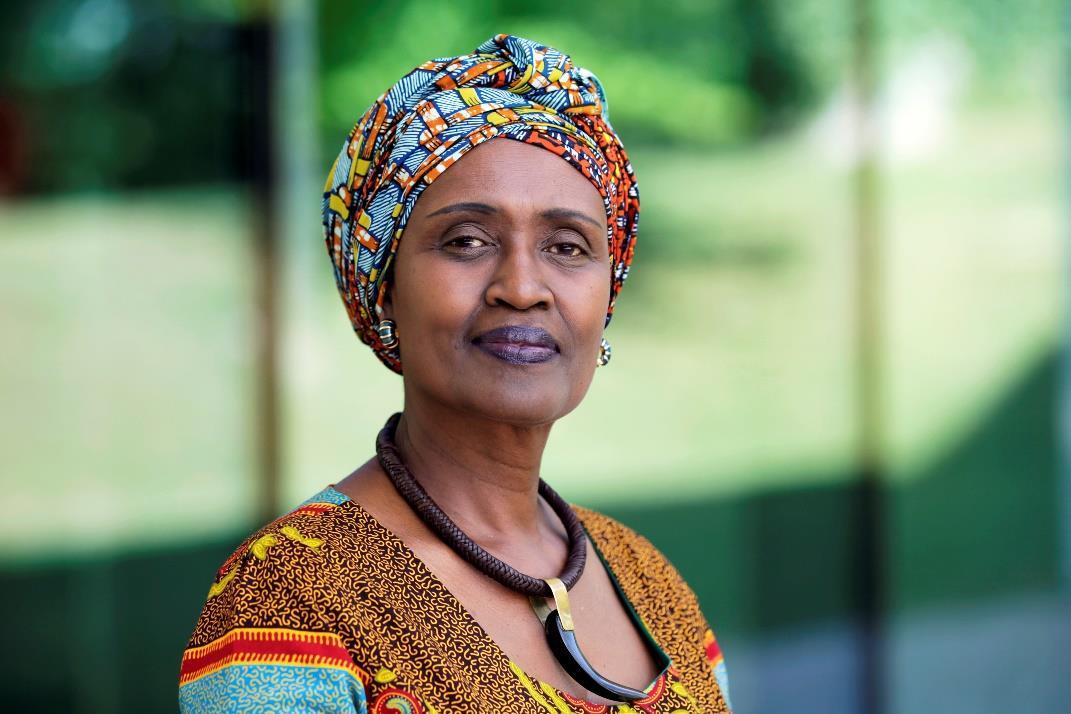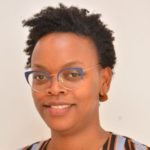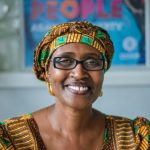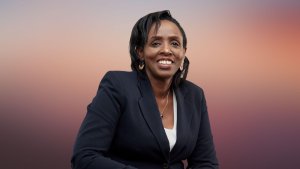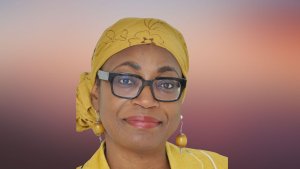In this interview, Dr. Folashadé Soulé and Dr. Camilla Toulmin discuss with Winnie Byanyima – Executive director of UNAIDS and a CGET (Commission for Global Economic Transformation) commissioner. Before joining UNAIDS, Ms. Byanyima served as the Executive Director of Oxfam International, and she was elected for three terms and served 11 years in the parliament of her country, Uganda.
In the two years since the pandemic started, what is your perspective on how the COVID pandemic has affected inequalities globally and especially in Africa?
It’s two years since the pandemic broke, and I’m very worried about the state of multilateralism – the world has failed to come together to solve this big global challenge. In the first year of the pandemic, the world was racing to find a solution. And we were all asking - can we find a scientific response to this virus? We saw even then that despite rich countries putting a lot of money into finding a vaccine, this would not solve all the problems. Past experience, especially from work on HIV treatment, tells us that a vaccine can be found but the question of distribution - to reach everybody - would be a big one, too. We started to campaign for what we called the “people’s vaccine” even before the vaccine was found because we knew from HIV that it took almost 10 years after antiretrovirals were developed for them to become accessible to people in the South. Meanwhile, 12 million people, mostly in Africa, died needlessly. The antiretrovirals were putting people back to health, to live normal lives in the rich countries, but people in the South were dying. We knew something like this would happen for COVID, so we started to tell leaders to put in place a plan for the distribution of these vaccines, and give a temporary waiver so that any country can replicate them without being liable to a court case. We also wanted a plan in place for sharing the technology, so that manufacturing can take place across the African region.
Today, the virus is still ahead of us, because a handful of companies have monopolized the technology and cannot meet the global demand for this vaccine. We’re seeing a big failure of global leadership to come together, and put in place a plan. We’ve seen targets for 2021 come and go. By the end of the year, 40% of the world should have been vaccinated, but we missed it. Now they are saying by the middle of 2022, 70% of the world should be vaccinated. But we will miss it again at this rate. That’s because governments have taken a backseat, and will not ask their companies to share the technology, although they have received a great deal of taxpayers’ money. I’m seeing a global crisis, with huge consequences, mostly for Africa, which is the least vaccinated continent. African economies have been shut, half-open, and shut again, bringing massive layoffs in key industries, which were producing for the rich countries. Look at the flower industry in Kenya, and the tourism industry there. They’re decimated, and you see something similar going on across Africa. Where we are part of global supply chains, we have been hurt terribly.
We also see that even when we got the vaccine and Africa was at the back of the queue, trying to pay for them, in the midst of a debt crisis. Many African countries are already failing to make debt repayments, and some are in debt distress. The international solidarity should have been there to get us all out of the crisis. While there was some relief to postpone the repayments for two years or so, it wasn’t enough, it wasn’t deep enough to enable countries to get themselves back on their feet. We saw a lack of solidarity on financing, and its clear the global rules that don’t work for the majority of people. These global rules are not changing because the international system can’t come together and do the right thing for people. Many governments we call democracies have been captured by big money, they are not working for ordinary people. What are those global rules? I mentioned the trade rules at the WTO. We have a resolution from South Africa and India asking for a waiver. Many countries are coming round to this, even the United States, but the UK and Germany who host these monopolies are not coming on board. Trade rules need revision to see how to incentivize innovation, and at the same time guarantee access to medicines for all. Look at the global financial system, as another example. We all agreed to issue special drawing rights, but most of them go to help the richer countries and very few go to developing countries. We have a financial system that’s skewed against developing countries, it does not help to resolve shocks of this kind, and leaves the poor vulnerable.
We have tax rules that favor those who hold capital. There are many resources in Africa that could be taxed, but what should be taxed is not taxed, and is sent off to tax havens through an elaborate set of loopholes that are legal. That’s tax evasion. Countries can’t collect the revenue they need to deliver services for their people. We see a crisis in the global rules, which don’t work for the poor countries, for the small person, for the ordinary person. Whether it’s the pandemic or the climate crisis, we need to reorder the global rules. But it’s not easy to reach agreements on this, even when we see a calamity ahead. Looking at the longer term, I feel pessimistic. Maybe in the short term, we might get some relief from this pandemic because Omicron is so mild, and it has spread to more than 90 million people. This means many people are getting some immunity against it, but we cannot be sure that the next variant won’t be more lethal. It is still very uncertain, and African countries are still sinking. They don’t have the money to pump into the economy, such as the stimulus packages we see in the rich countries.
What has been the role of UNAIDS during this pandemic? Where do you see the links between the fight against HIV/Aids and COVID-19?
There are several positive things we have learned, including some mistakes, from fighting HIV/AIDS, which apply to how you fight any other pandemic. One of them I have mentioned is access to the solutions that science brings. We learned the hard way that unequal access to antiretrovirals cost us millions of lives. We should never repeat that mistake. We must make sure that when there’s a scientific solution, we immediately make it available to everybody and find ways to incentivize the innovator. Right now, there are two or three companies that own the mRNA technology, and their leaders have become billionaires. One wonders how many billions would make them happy! This would be the time to share the technology.
The second lesson we have learned is that a global pandemic affects everyone. It doesn’t respect borders, so you have to find a global solution. This is what happened with HIV. The world came together and made a global plan, set global targets, and put resources behind them. A global problem needs a global solution. UNAIDS is a Joint Programme to fight HIV/AIDS. It has global targets, we set them every five years, we study the pandemic, and we monitor how the world is progressing. We know where the gaps are, what needs to be done, and those who can afford to pay more. But with this COVID pandemic, two years on, there’s no global plan. The UN Secretary-General has called for one, but nationalism has come in the way of finding a global solution. The HIV pandemic still doesn’t have a vaccine or a cure, but within that frame, out of 37.7 million people with HIV, we have 28.2 million who are on treatment and living healthy lives. We have 9.5 million who, for many reasons, cannot access the benefit of the science that’s available, the ARVs, but we have a global strategy. This is completely missing for the COVID-19 pandemic, and without it, this virus will always be able to mutate in some part of the world, become a more lethal variant, and come back to attack the world.
The third very important lesson is that a pandemic is not just a medical or health issue. It is about inequalities because it moves along the cracks of the inequalities in society. If you don’t close those cracks, it doesn’t go away. That is what we have learned and that’s why we have a “whole-of-society” approach to fighting HIV. It’s never just about giving somebody some tablets in a hospital. No, it’s more than that. It’s about human rights and closing the gaps in access to human rights for people, those who are underground. We have to look out for them and fight for them to enjoy their rights, to come forward and get treated, such as gay men, sex workers, or transgender women, they need to come forward to get their treatment. They must enjoy their human rights. It’s a legal issue.
If you look at these travel bans on Africa, they are so senseless and are not based on science. I call them racist, actually, because they’re not helping anybody to protect themselves. Rules and policies are often not based on the evidence of science, so we have to work with legal frameworks to enable collaboration, cooperation, and freedom….
The COVID-19 pandemic also raises many economic issues, as we have seen. We have learned that the health of economies and the health of people are tied tightly together. When you apply public safety measures, they have an impact on the economy. How do you optimize and get the right mix? We must bring economists and social scientists into the equation of finding a solution for a pandemic. We saw some countries that got it right, that were able to put together multi-sectoral teams. Many others either securitized the issue and had it handled by people from the military, or who made it a medical issue and placed it in the health sector and ignored all other aspects.
But most of all, it’s about communities, about people taking charge and protecting themselves through prevention, treatment, and testing. It’s about empowering people, and taking the services to them – we can see this is the quickest way and the shortest way. These are some of the lessons we have learned from HIV and which apply in the fight against Covid with some success. We must get better at the global level, to learn from our experience.
Could you highlight some positive examples of work and innovation by NGOs and civil society during the pandemic, and how might we build on these?
Yes, I’ll give you an example from South Africa. This is one country that has been hit hard not just by HIV/AIDS but also by COVID. After a period of denial, they got behind a strong strategy to fight HIV. South Africa has the largest number of people living with HIV in the world and they have made some of the greatest gains against HIV in the last 10 years. One thing they have done is to empower communities to take charge, so when COVID hit, the entire infrastructure from the battle against HIV could kick in. From the laboratories and the scientists to the communities who are active in fighting HIV, they could work on both pandemics at the same time in smart ways. In South Africa, if you remember the early phase, before it penetrated into communities, the important task was to identify those with the virus, isolate them, and prevent the spread of the virus. This work in South Africa was largely done by communities because they were already mobilized, trained, able to learn how to identify the symptoms, how to engage people, and then offer them support.
The same community-based organizations that do campaigns about HIV prevention were now carrying the messages about protecting yourself from COVID, sanitation, social distancing, mask-wearing – the same communities were taking this work on and delivering. South Africa has one of the best surveillance systems in the world, but the scientists don’t work alone. They are able to detect new variants well ahead of most other countries, even though they get punished when they share their knowledge, as with Omicron. They work with people in communities who gather the data they need, to carry out their technical work. It’s a partnership between them and community leaders, whom they have known for many, many years and who are trusted, as they have the skills to help with surveillance and collection of data.
There are many other good examples. For example, in some countries, we were touched by stories of people living with HIV coming together and solving problems together. This time looking for solutions to COVID, they were afraid to go to health centers, to collect their antiretrovirals because everybody feared getting COVID, but at the same time, they need to stay on their treatment. So they organized ways of taking a bicycle ride, to go collect their medicines, and then distribute to people in ways that limited contact, using digital technology to identify where people are living. Many of them don’t want to be seen collecting their medicines. They need their privacy because of the stigma associated with HIV. They were very creative about supporting each other to keep people alive, as these are life-saving treatments.
We have many examples of defending human rights together. Sadly, it is often the case in society when there is a problem that doesn’t have a solution, a scapegoat is found. And very often it has been the weakest, minorities, people living with HIV, but if they can come together, they can build this resilience, from fighting HIV, to defend themselves and claim their rights.
Many have called for the pandemic to be considered as an opportunity to “build back better,” and to improve the capacity to better prevent, detect, and respond to health emergencies. Do you see African governments using the crisis as a way to trigger a new health paradigm in Africa?
This is what has made me the most hopeful in this crisis. When the pandemic was spreading and we saw rich countries that have the means turning inwards, African leaders didn’t look inward. Instead, they came together, understanding the weakness of the continent in the global economy, to access the vaccine, buying in bulk to use their market power to get fair access to the vaccine and medical supplies. They tried hard, and their efforts were partially successful. But they also realized that even with their whole big market, putting all their resources together, they were still being pushed to the back of the queue. Those with the strongest, sharpest elbows, the richest, were at the front of the queue, and even hoarding vaccines. So, African leaders were disillusioned and decided they must not be found in this situation again; when the next pandemic breaks, Africa must be in a stronger position. They have been working together on a strategy for the manufacturing of health technologies in Africa. It is a serious plan that is already being implemented, with several countries building up capacity for mRNA technology. South Africa, Senegal, and Rwanda are in different stages. The leadership of the Continent is aware that this production must be for the whole continent, not just for one country. This collective action makes me a proud African, that we come to solve problems together. I want the world to learn from Africa about that, we have things to teach the rest of the world, even though many in the rich world always think they have much to teach Africa.
For me, this is one important example of coming together and facing a problem together. The investments that have been made are serious and real. In South Africa, they are trying to build a plant that can make the same kind of mRNA technology as Moderna. If Moderna were to say “here’s our technology, here’s how we did it” they would reach a solution in the next two years. But instead, they’ll take longer, it will be slower because of the monopolies. Africa has taken the right steps to secure its future for access to medicines. And, we need to make the AfCFTA work, Everything hinges on that agreement working, and being put into operation. I think Africa is ready for it now.
What will be the future of multilateralism after COVID? How to reform the system in order to make multilateral institutions more responsive?
I think that the multilateral system is paralyzed because these institutions were created long ago, in the political context of the time. Seventy years ago, the world was different. Since then, the world has changed a lot. We need to be bold about reforming the multilateral system so that it reflects the way the world is today and the principles that it was founded on, that every country is equal and human rights come first. Institutions like the international financial institutions need to be reformed so that they actually do what they were set up to do, which was to cushion the world from economic shocks maybe from a security threat or a climate threat, to help countries absorb such shocks and lift themselves up. But these institutions today don’t do this - they are controlled by a few rich countries.
Reforming those institutions will take a political will, which will have to come from the rich countries - the European Union, United States, China, Russia, Japan. These countries must show a willingness to reshape the global system to solve economic, social, and environmental problems. The institutions are there, but they do not function because the countries themselves don’t respect the very rules that they made, whether that’s the rules of war, or the rules of the economy. They have used their power in the international system to create rules that protect monopolies which put the right to profit before the right to health.
The multilateral system is dominated by the rich who want to protect the interests of a handful of capital owners. We have to look at the state of democracy in the world too. As I said earlier, rich countries and their own democracies have been changing, and are being eroded. The voice of interests is stronger than the voice of ordinary citizens in these countries which we call “liberal democracies”, and this has also influenced the culture of the multilateral system. The people who lead are not leading for ordinary people. They are leading for big interests. I always try to go to the root of problems, and I think people must organize to claim back their power, particularly on our continent which is seeing military coups left and right. The democratic deficit is everywhere. It is also for citizens in the United States of America and in Germany, wherever, to claim back their power, and push back special interests so that ordinary people can shape the rules.
I don’t see this as just a problem where we have a dictatorship. No, it’s everywhere. We need to work on democratization across the world. We need some movement towards finding a plan for future pandemics. We have some negotiations starting here in Geneva, which could be an opportunity to put in place what’s needed in each country and then get effective coordination at the global level, then we would be better able to withstand a future pandemic. But if it just becomes a place to agree on access to information, so that those who have power can get your data and run off with it, to find solutions for themselves that they don’t share with you, that just won’t work. There is now a push towards giving WHO power to be able to move quickly and get the information it needs in order to prevent a virus breakout from becoming a global pandemic. This is good but it’s not enough.
If you have a health system in collapse, which has become privatized as well, the majority of people can’t even access basic services and you are not going to be able to fight a pandemic. That’s not a structure to get you out of a pandemic. The right to health means giving people the right to health care across the world, and the right to social protection. A pandemic means people and their lives are disrupted, uprooted, and the poor suffer. Social protection is key and needs to be there as a basis to fight a pandemic. Around a formal health system is an army of volunteers, of community health workers, or young people or communities working to connect people to the health system. Even with our fractured multilateral system, these are the sort of things that I think the world can make some progress on. That’s why I’m here in this role to help member states to make progress. We may not be where we should be, but we can do a few things to push forward.
